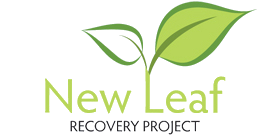Study finds alcohol use is biggest risk factor for dementia

Alcohol use disorders are the most important preventable risk factors for the onset of all types of dementia, especially early-onset dementia. This according to a nationwide observational study, published in The Lancet Public Health journal, of over one million adults diagnosed with dementia in France.
This study looked specifically at the effect of alcohol use disorders and included people who had been diagnosed with mental and behavioural disorders or chronic diseases that were attributable to chronic harmful use of alcohol.
Of the 57,000 cases of early-onset dementia (before the age of 65), the majority (57%) were related to chronic heavy drinking.
The World Health Organization (WHO) defines chronic heavy drinking as consuming more than 60 grams pure alcohol on average per day for men (4-5 Canadian standard drinks) and 40 grams (about 3 standard drinks) per day for women.
As a result of the strong association found in this study, the authors suggest that screening, brief interventions for heavy drinking, and treatment for alcohol use disorders should be implemented to reduce the alcohol-attributable burden of dementia.
“The findings indicate that heavy drinking and alcohol use disorders are the most important risk factors for dementia, and especially important for those types of dementia which start before age 65, and which lead to premature deaths,” says study co-author and Director of the CAMH Institute for Mental Health Policy Research Dr Jürgen Rehm. “Alcohol-induced brain damage and dementia are preventable, and known-effective preventive and policy measures can make a dent into premature dementia deaths.”
Dr Rehm points out that on average, alcohol use disorders shorten life expectancy by more than 20 years, and dementia is one of the leading causes of death for these people.
Alcohol Abuse
Alcohol use disorders were also associated with all other independent risk factors for dementia onset, such as tobacco smoking, high blood pressure, diabetes, lower education, depression, and hearing loss, among modifiable risk factors. It suggests that alcohol use disorders may contribute in many ways to the risk of dementia.
Receive a Free Call Back
"*" indicates required fields
Our Complete Recovery Journey - from your initial enquiry, all the way through treatment and beyond into ongoing support, New Leaf Recovery are there to guide and support you.
New Leaf offers a complete journey of treatment - from initial detoxification and rehabilitation to ongoing support, including aftercare, family support, and beyond into long-term recovery.
Getting the right accommodation enables us to provide the right backdrop for our recovery methods. Any form of rehabilitation needs to happen in a safe, comfortable, secure and friendly environment.
Receive a Free Call Back
"*" indicates required fields










